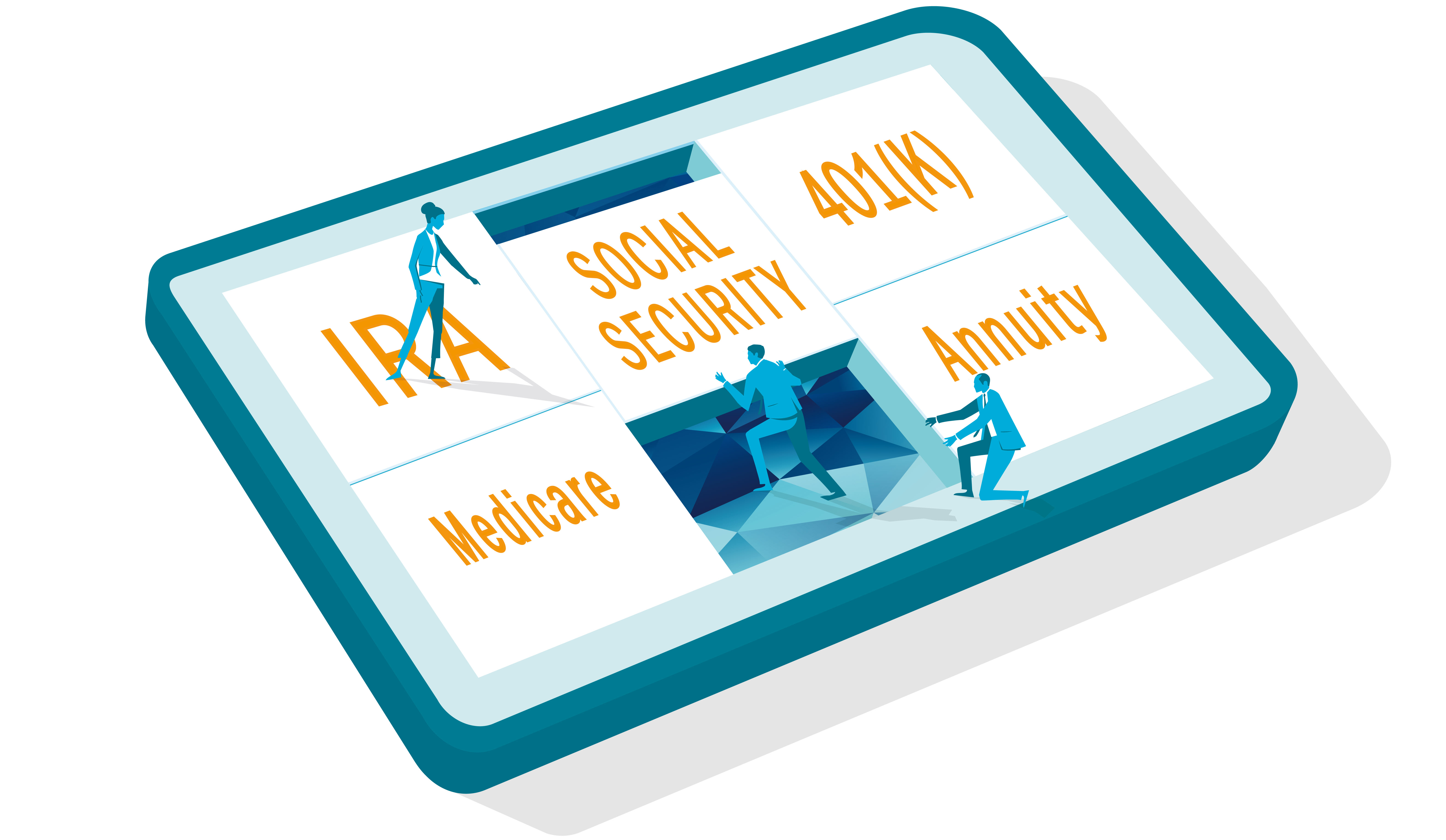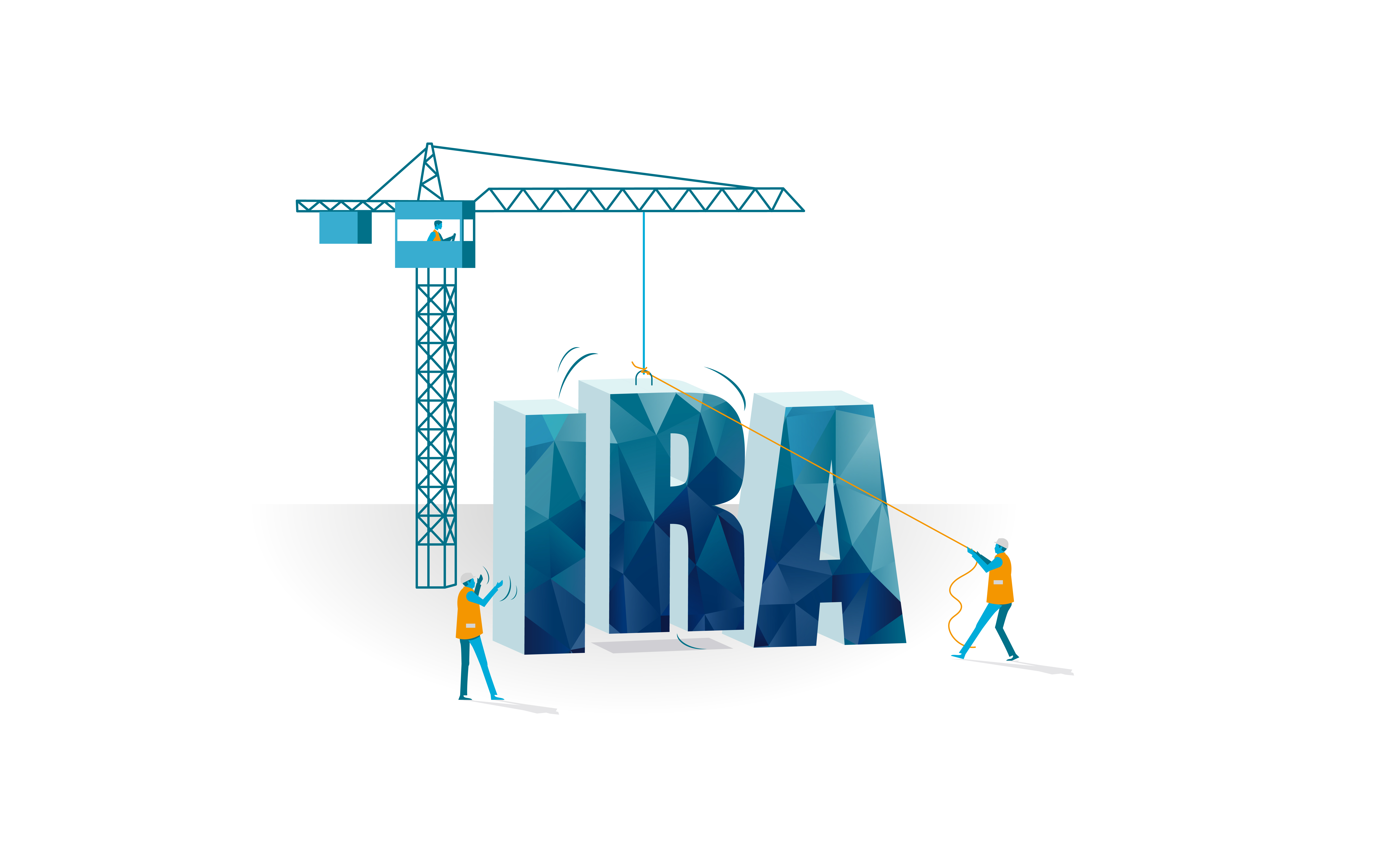Retirement planning checklist: Managing retirement accounts

Preparing for retirement by knowing where your accounts are, how to access them and what those accounts contain is crucial to smart financial management. When you keep your financial information in one place and up to date, you can help ease stress on yourself, your family or other beneficiaries. Our retirement planning checklist can help you cover your bases and be better prepared for the future.
Get organized, for yourself and your loved ones
Maintaining important documents and sharing key information can provide comfort should anything unexpected occur. Be sure to periodically walk a spouse, partner, adult child or trusted friend through legal and financial records, personal identification numbers (PINs), passwords and other pertinent information. Incorporating a checklist for retirement planning can help you stay organized and may identify items you overlooked. Learn more about planning for retirement below.
How to complete the first item on your planning checklist.
FILE AND PROTECT IMPORTANT DOCUMENTS
- Designate a binder to hold all bills and paper statements.
- Keep legal documents, tax information, and permanent records in a fire-safe box in your home, or in a safety deposit box.
Go paperless
- Register for online account access.
- Create a consolidated source of information.
Automate when possible
- Sign up for automatic deposits for your paychecks, Social Security payments and tax refunds.
Catalog accounts and key documents
- Keep track of what’s in your safety deposit box and share it with trusted family members and friends.
- Include a list of account numbers, descriptions, passwords and PINs in your safety deposit box.
Plan ahead
- Designate a power of attorney and consider a living will or health care directive.
- Write down contact information for your attorney, financial advisor and accountant and share this information with your heirs.
- Provide your most trusted loved ones with the combination to your home safe or access to a safety deposit box.
- Discuss your legal documents in detail with a financial advisor to help them more fully understand your needs and goals.
Identify all open accounts
If you haven't been keeping track of your retirement and other financial accounts, it may seem daunting to get organized. But a few simple steps can make completing your retirement planning checklist manageable:
- Register for online access to your accounts. It’s a good idea to do this for all of your financial accounts so that you can easily retrieve the information you need.
- Make a list of former employers. If you think you may have a forgotten account, get the phone number from your former employer's website and call the HR or Benefits department to help you locate the account.
- Gather your tax paperwork from previous years. You may have evidence of an account you rolled over or a contribution you deducted.
- Confirm accounts for your household. If you are married or have a partner, this is an ideal time for you to get organized together.
Once you have gathered the information you need, list the accounts, their location, current value and access information. Share this retirement planning checklist with your spouse or partner, and then store it in a safety deposit box or home safe.
An Ameriprise financial advisor can help you review your accounts and take an overall look at your finances.
Update your beneficiaries
Another item on your financial checklist for retirement planning is to update your beneficiaries. Each of your retirement accounts will pass to the beneficiary(ies) listed (or according to your plan's default beneficiary if you do not list a beneficiary), regardless of what you stated in your will or trust. So it's critical to review your beneficiaries regularly, especially after a marriage, divorce, birth, or death of a loved one.
As you review your beneficiaries, keep these tips in mind:
- Designate a contingent (or secondary) beneficiary in case something happens to your primary beneficiary.
- Name a new beneficiary if a primary beneficiary (such as a parent) dies.
- Remember to remove an ex-spouse after a divorce or new marriage.
- Update your beneficiaries after the birth or adoption of a child.
- Get guidance from an estate planning attorney before naming an estate as your beneficiary.
- Complete a separate beneficiary form for each plan.
This is also a good time to update other documents, such as:
- Wills
- Trusts
- Financial and medical powers of attorney
- Real estate titles
- Business ownership agreements
Keeping your beneficiary designations and legal documents up to date can help ensure a smooth transition of your assets to your heirs.
Decide what to keep and what to destroy
It’s important to review which documents you need to keep and which you can get rid of. While it's smart to keep permanent documents in a fire- and water-proof safe or safety deposit box, there are certain items that you can dispose of over time. Be sure to shred all retirement account documents before discarding to keep them out of the hands of identity thieves. For those records you keep, make sure you tell your family and other beneficiaries how to access your safe or safety deposit box if they ever need to.
How long should you keep tax returns and other important financial documents?
| Keep indefinitely | Keep for 7 years | Keep for 1 year | Keep for a month or less |
|---|---|---|---|
| Legal and permanent records | Tax-related records, such as W2s | Paycheck stubs | ATM and bank deposit slips (for transactions that can be confirmed online or through a consolidated statement) |
| Will or trust document | Receipts for tax-deductible purchases | Credit card statements | Receipts for non-deductible purchases, unless you are holding them for possible returns or warranty-related repairs |
| Birth and marriage certificates | Canceled checks | Bills such as rent, cable and electricity | |
| Insurance policies | Retirement account contributions | Account statements | |
| Deeds | Charitable donations | ||
| Large out-of-pocket medical expenses | |||
| Mortgage payments |
We’re here to help
For additional assistance on a retirement planning checklist or in managing your money in retirement, contact an Ameriprise financial advisor.
Or, request an appointment online to speak with an advisor.
At Ameriprise, the financial advice we give each of our clients is personalized, based on your goals and no one else's.
If you know someone who could benefit from a conversation, please refer me.
Background and qualification information is available at FINRA's BrokerCheck website.
